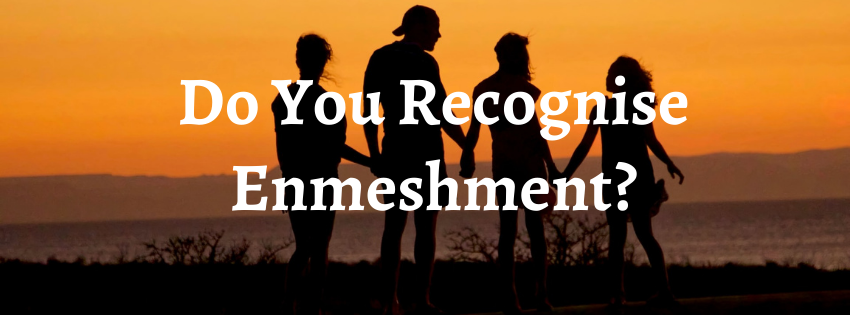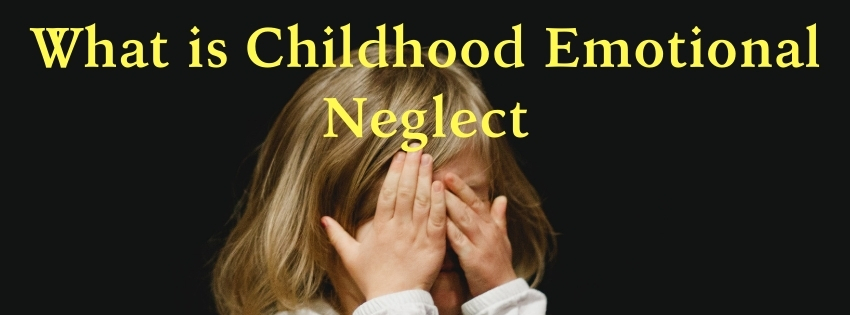Emotional abuse can have a profound impact on women and leave deep scars that last…

Do You Recognise Enmeshment?
Enmeshment describes family relationships, particularly between parents and children, that are intertwined in unhealthy ways. Enmeshed families may appear very loving from the outside, but that love is often based on a sense of guilt and obligation.
Generally, we can think of families as existing on a continuum of closeness – on the one extreme end we may have a fully disconnected family where members barely spend time with each other and have minimal investment in each others’ lives, and on the other end, we have families that appear extremely close, their lives are intertwined and members have lots of mutual investment. Enmeshment emerges when there is excessive closeness and where unreasonable loyalty or caregiving is demanded (typically by a parent) that leads to excessive guilt about living your own life. In enmeshed families outsiders (partners, other family members, friends) are seen as a threat to the system and loyalty towards them is discouraged.
Often, enmeshment is rooted in a lonely parent who substitutes their child for their partner. For example, a child can feel like a surrogate parent or partner to a parent as they hear too much about the problems or suffering of their parent and are drawn into emotional or practical caretaking. This leads to adult children who feel a sense of obligation to their parent’s well-being at the expense of their own needs or the life they have created.
The difference between offering care/support and enmeshment
Where is the line between caring and enmeshment or cultural norms/traditions and enmeshment? The key marker is this – an enmeshed person consistently makes decisions that are based on obligatory guilt, not on the freedom of being themselves or responding to their own needs. Their internal compass for decision making is more of “Will my parent be upset/disappointed/angry with me if I don’t do this?” rather than “Do I want/need/have the resources to respond to this request?”.
How being enmeshed impacts you
Enmeshment has a direct effect on relationships and a person’s sense of self because it is the opposite of freedom. If you are enmeshed with your family you may:
- Feel excessive responsibility to the emotional needs of your parent(s).
- Feel burdened by this responsibility, and find it difficult to make important changes in your life.
- Often experience guilty, frustration or distress after family interactions.
- Have difficulty setting boundaries and negotiating your needs with others.
- Provide excessive caretaking.
- Feel as if you are losing your true identity or constantly have to fight hard to assert it.
- Neglect self-care .
- Often struggle with indecisiveness.
- Often feel like you are making troublesome compromises – trying to please and placate everybody.
- Experience displaced anger or often feel like others are trying to control you.
Overcoming enmeshment and moving towards healthy independence
While there is a degree of caring and compromise that is normal and even necessary, please know that it is not your job to sacrifice your life and needs for your parents. Your main job is to lead your own life and take ownership for your choices and your needs. Here are some important steps on your journey to emancipation:
Learn to differentiate obligatory guilt from real guilt.
Real guilt is when we have hurt another person or violated an agreement with them. Obligatory guilt comes from obligatory demands made on us from parents, siblings, friends etc. designed to make us feel guilty and take care of them and their problems in instances that are not our responsibility. Such obligatory demands make us feel guilty even when we have done nothing wrong.
Learn to say no rather than constantly trying to make amends and offer apologies.
List specific examples of when others make you feel guilty, your feelings and self-talk associated with it, and how this guilt interferes with your life and relationships.
Use this as a guide and motivating factor to step out of the pattern next time you notice it occurring.
Challenge your beliefs that create obligatory guilt.
Where does it come from, have I done really something wrong, does it come from someone else? If these beliefs have come from a role you have played as a child, let go of them. Replace these old beliefs with healthier ones such as “I am not responsible for your marriage troubles”, It is not my job to take care of you emotionally”.
Want to learn more about Enmeshment? Listen to this podcast with American psychologist Ken Adams, one of the leading researchers on this topic.



